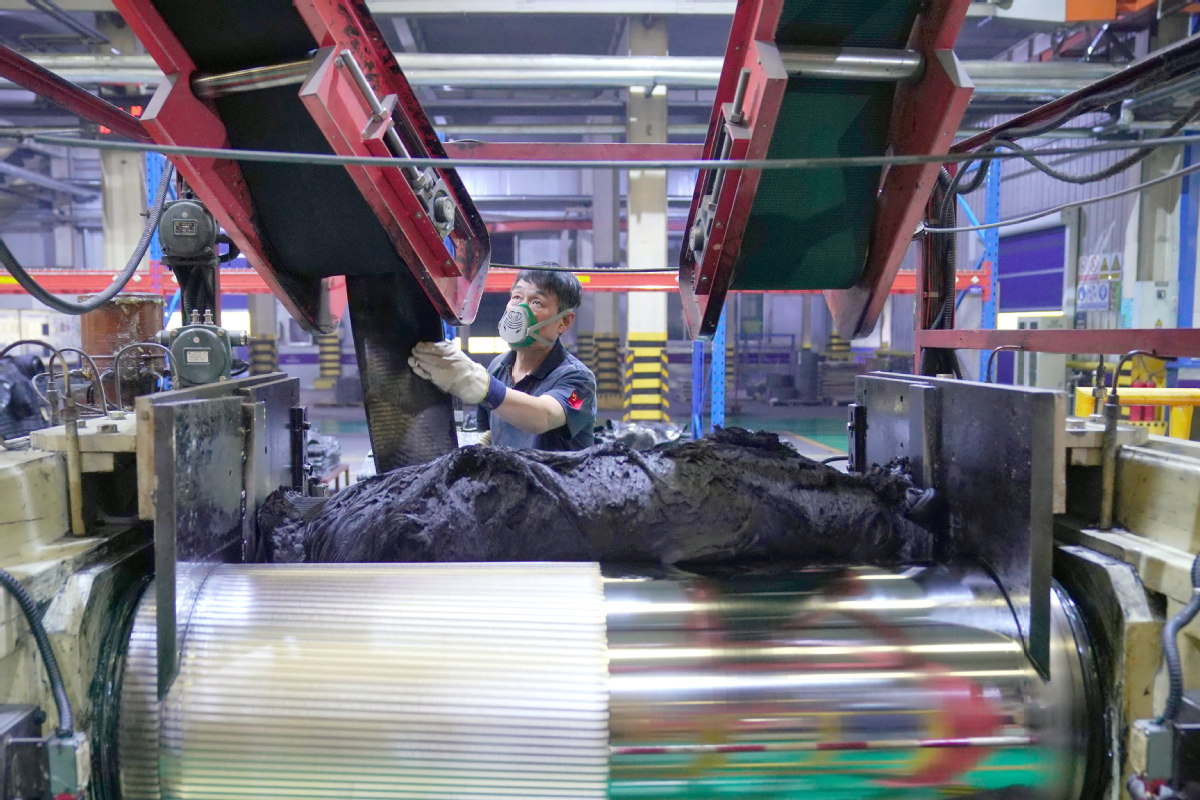New effective measures give fresh impetus to foreign investment


In the context of China's utilization of foreign direct investment this year, stabilizing the scale and improving the growth level will be the main tasks.
With the impact of the COVID-19 pandemic and declining global economy pushing China to accelerate its economic reforms, the country introduced a number of effective policies to stabilize foreign investment last year.
These included continuing to increase the degree of openness in the financial sector and other fields, and expanding two-way exchanges in intellectual property and other high-tech fields. The dividends released by these policies will gradually appear this year.
The International Monetary Fund has said the Chinese economy is expected to achieve a relatively high growth of about 8 percent this year. So, there is still more growth potential for both investment and market demand in China.
This is expected to create new space for international cooperation, including promoting the transformation and upgrading of traditional manufacturing businesses, speeding up the development of emerging industries, upgrading the services sector and building strategic pillar industries.
Moreover, a series of promotion moves will generate fresh impetus to attract foreign investment. Such moves include high-quality growth of pilot free trade zones, innovation, upgrading projects within State-level economic development zones, more policy access regarding mergers and acquisitions for global companies, improvement of business environment, and creation of a new growth pole for opening up the country's western region. Therefore, the new round of opening-up in China this year will create more room for FDI growth.
As far as industry is concerned, the on-schedule completion of the bilateral investment agreement negotiations between China and the European Union has showed both sides' commitments to offering each other high-level and mutually beneficial market access in enriching trade and investment activities.
The US government under Democratic Party's leadership may also ease the economic and trade tensions with China, indicating the cooling of irrational trade frictions will be beneficial to investors. These elements, to a great extent, will help restore confidence in investing in China's manufacturing and innovation sectors this year.
Other businesses such as new energy vehicles, biomedicine, smart manufacturing, healthcare, education and training, as well as other high-tech industries, are all expected to become the focus areas for foreign investment this year.
Even though the utilization of foreign capital in China's central and western regions will increase, the structural problems, or the gap in FDI attracted by the eastern and western parts, will not change fundamentally due to the integrity of the industry chain and the size of consumer base in central and western regions.
However, with these regions' new competitive edge in lower costs like labor and power, the FDI gap will likely gradually narrow in the future.
Because China's utilization of foreign capital is still facing challenges, the government needs to pay particular attention to a number of areas. In addition to continuing to expand the high level of opening-up to the outside world, China needs to watch moves made by the new US government closely and make its own policy response in advance.
Japanese and South Korean companies that invested in China have found that they are yet to achieve market shares for their products to the desired level. They will see there is still a huge room for growth in the future.
Backed by its massive market size, infrastructure and favorable policy environment, China will remain as a core investment destination for Japanese and South Korean companies in Asia.
On the other hand, China should also strive more to attract more FDI from these two manufacturing powerhouses in the future.
China should also attach great importance to its Hong Kong Special Administrative Region's role in opening-up to the world. It should let the region to further exploit its comparative advantages in being an international financial center and having a world-class business environment backed by a highly educated professional workforce. Such an approach will help attract more global capital to Hong Kong.
To support these efforts, it is equally vital to further streamline the approval process, lower market access threshold, remove certain fees and charges on the companies concerned, promote fair competition, and improve government service level for foreign companies to invest in China.
In addition, efforts are needed to create a fair and sound business environment for the dual-circulation development pattern, in which domestic and overseas markets reinforce each other with the domestic market being the mainstay.
China's actual use of FDI surged 6.2 percent year-on-year to 999.98 billion yuan ($154.6 billion) in 2020, a historic high. The structure of FDI also improved. The country's services sector attracted 776.77 billion yuan of FDI in 2020, up 14 percent on a yearly basis, accounting for 77.7 percent of the country's total use of foreign investment, according to the latest data released by the Ministry of Commerce.
Major FDI sources also remained stable. The top 15 countries and regions investing in China saw their investment expand 6.4 percent year-on-year, taking up 98 percent of the country's total FDI last year.
Among the major investors were the Netherlands and the United Kingdom, whose investment in China rose 47.6 percent and 30.7 percent year-on-year, respectively.
Though China's record-setting use of foreign direct investment in 2020 reflects foreign investors' strengthened confidence in conducting business in the country, the government should be aware that the continuous spread of the pandemic overseas has adversely affected the stability of the industrial and supply chains.
As the world economy has suffered a recession, international demand has shrunk sharply; the domestic epidemic prevention and control situation is still tight; the foundation for a full economic recovery is not yet solid; so, companies are facing insufficient orders and rising ocean shipping costs.
Nevertheless, with China showing strong economic resilience during the pandemic and becoming the only major economy to have a positive growth in 2020, the country's huge domestic market, continuously optimized business environment and effective implementation of various policies to stabilize foreign investment will lay a solid foundation for maintaining steady growth of foreign investment in the long run.
Thanks to China's effective anti-epidemic measures that allowed factories to restart while production in the rest of the world was still partly grounded, its future growth potential also remains stronger than that of most other major economies. As it is shifting to dual-circulation development paradigm, featuring further opening-up and the synergy of domestic and foreign markets, its regular rollouts of policy measures will facilitate investment and optimize the business environment.
As far as the global investment policy is concerned, opposing protectionism and unilateralism, promoting the establishment of a fair, reasonable, transparent, and rule-based international economic and trading system, promoting the orderly flow of production factors, and efficient allocation of resources will remain key to success. The overall global investment policy will continue to move forward to the next level of opening-up and convenience.
Despite protectionist headwinds, China's opening-up momentum has remained unabated, rolling out new measures, which included cutting its negative list for foreign investors, introducing its master plan for the construction of the Hainan free trade port and further expanding pilot free trade zones in the country.
These pro-investment endeavors have paid off. A recent survey conducted by the Ministry of Commerce showed that profits of nearly 60 percent of foreign-invested firms in 2020 posted growth or remained flat compared to a year ago, with nearly 95 percent holding an optimistic attitude about future prospects.
In Shanghai alone, 51 new regional headquarters of foreign-funded multinationals and 20 new foreign-funded research and development centers were set up in the city last year, boosting the total figures to 771 and 481, respectively, according to data from the municipal government.
The writer is a research fellow and deputy director of the Foreign Investment Institute, which is part of the Ministry of Commerce's Chinese Academy of International Trade and Economic Cooperation.
The views don't necessarily reflect those of China Daily.



































